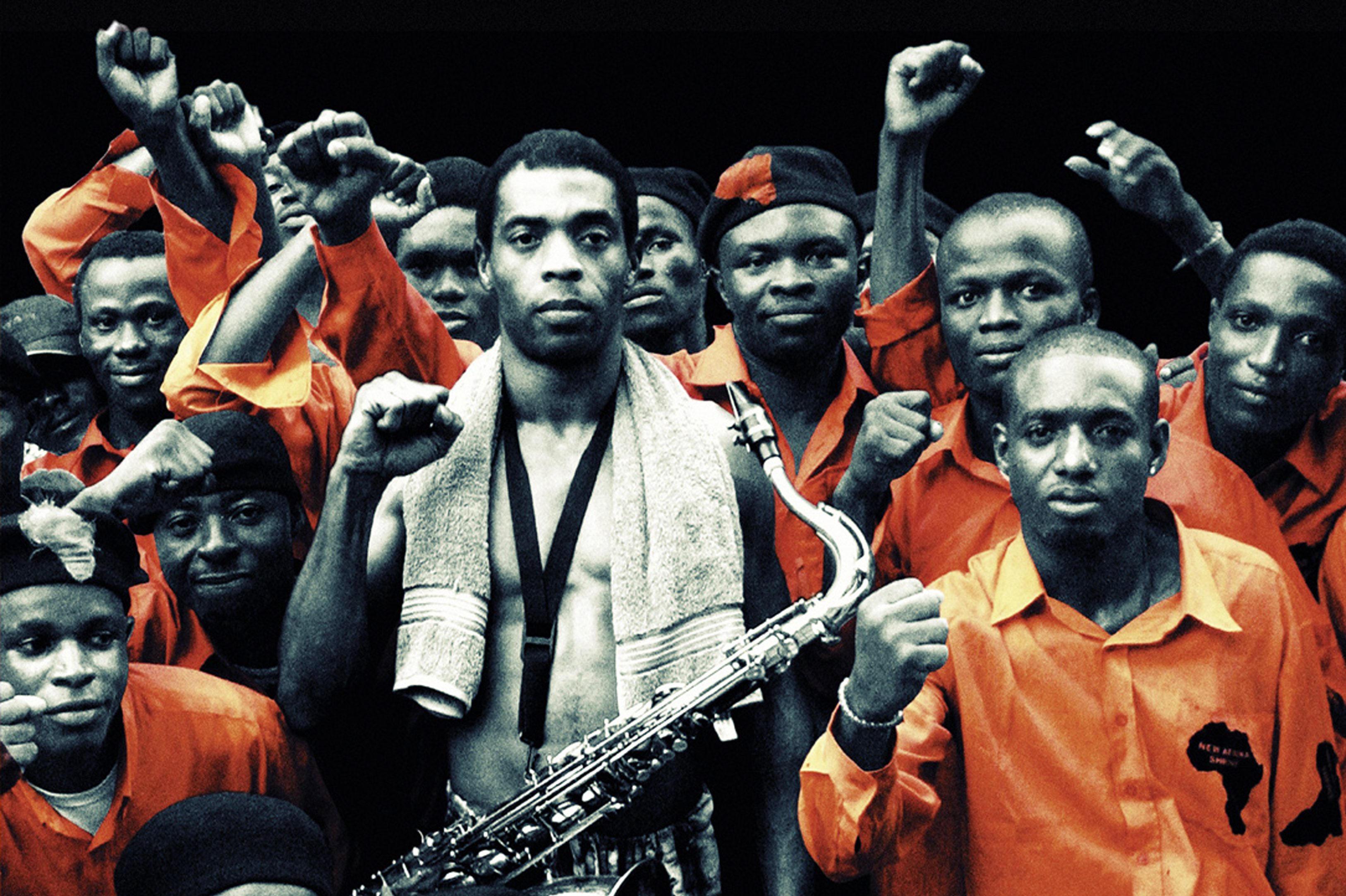Son of Fela Kuti, the creator of afrobeat and an outspoken critic of Africa’s corrupt political systems, both music and activism are in Femi Kuti’s blood.
Having first played sax in his father’s band and then going on to form The Positive Force in 1988, for over 20 years Femi has toured the world, serving as a prominent voice against oppression in Africa and dedicating his life to spreading awareness of the injustices running rife over the continent.
Unlike other high profile activists, such as your domesticated Bono or Geldof, Femi has been directly affected by the corruption in his homeland; his family suffered for years at the hands of the Nigerian government and military. While for decades the regime have attempted to silence both Femi and his father, the most shocking case of persecution occurred in 1977 when 1,000 Nigerian soldiers attacked Fela’s home in reaction to his album Zombie’s condemnation of the Nigerian military. During the attack Fela was beaten almost to death and his elderly mother was thrown from a window, causing fatal injuries. His home and recording studio were burnt to the ground, along with all of his instruments, equipment and master tapes. This entire incident was later ruled the act of an unknown soldier by a government inquiry.
Despite being dealt such a blow by the government, Fela refused to give up, continuing to release albums and remaining politically active until his death in 1997. Femi has continued to uphold his father’s legacy in the face of government oppression. But while the Nigerian government have never let up (they attempted to shut down Femi’s club The Afrika Shrine even as recently as last year), as Femi’s international profile grows the government have found it harder and harder to get away with their attempts at silencing him.
“There is a lot of international pressure on them, so they’re trying to keep it quiet,” he tells me sombrely, of their attempts to close his club.
“They don’t like it but there is nothing they can do about it.”
Even with Femi currently safe from persecution, he still remains passionate and dedicated to achieving reform in the troubled continent, shining a light on issues that the western media often fear to touch.
“I talk about injustice and corruption in my music. Western governments have always had an interest in Africa and have contributed to the corruption and injustice here, and it’s they who are responsible for the downfall of Africa. It should be in the foreground of the news, but I think it’s hard for people in places like Australia to hear that, because you don’t want to hear that kind of news and your governments don’t want you to know what is going on in Africa – because they are involved,” he explains.
“So I understand why you don’t hear about Africa in the news.”
Where a lot of us in wealthy western nations like to look at Africa and pass off the problems at having nothing to do with us, the truth is that Africa suffers so that we may prosper.
The success of our powerhouse economies is dependent on being able to source cheap resources from Africa. Our governments know this and therefore have forged numerous shady alliances with oppressive and corrupt regimes over the years, in an attempt to buoy up our excessive lifestyles.
“They closed their eyes to the injustice here and it makes sense why they don’t say a word about it,” Femi continues.
“It is only ever in the news when ordinary journalists with nothing to gain or lose come over and see these injustices, and even then they have to fight to get their stories out to the people.”
With his own and his father’s fame having grown in recent years (the story of Fela’s life has even been turned into a Broadway musical), Femi is thankful for having seen improvement in his lifetime. But he is adamant that more could be done, calling for people from the industrialised world to demand their governments take responsibility for their actions in supporting corrupt regimes.
“We need to tackle the problem by not supporting corrupt governments, by exposing corrupt governments, to not let them bank in Europe, and to expose the money they have in banks in Europe.”
While resolute that this is the only way to solve Africa’s current problems, he doesn’t see this happening anytime soon:
“I doubt I will see it in my lifetime.”
The key obstacle he says is apathy and a lack of interest on the part of the people. It is because we as citizens of industrialised nations allow our governments to propagate a pattern of negative action in Africa that these problems still exist.
“Ordinary people on the street don’t think about this,” he explains to me.
“They’re too busy taking their children to school and making ends meet. The last thing on their mind is what their governments are doing outside their borders.”
The message of Femi’s music is that it’s up to us to end the injustices. There’s no greater force than the human conscience, through which he believes we can end the culture of exploitation that has seen Africa crippled since the colonial age. While he never judges people for their lack of action, Femi hopes to make us judge ourselves.

